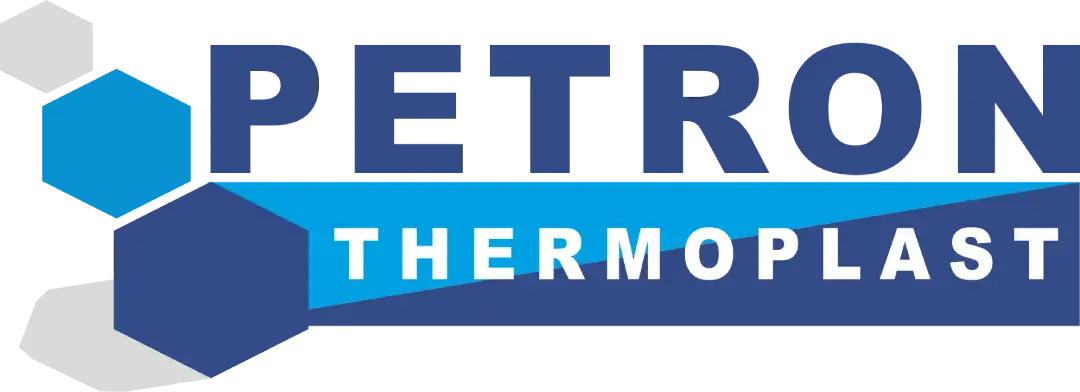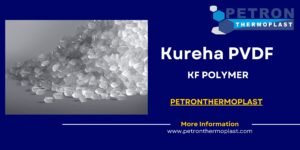In today’s industrial landscape, efficient fluid control is crucial for maintaining the performance and safety of various systems, from water treatment plants and chemical processing facilities to HVAC systems and manufacturing operations. Among the many components that contribute to these processes, UPVC ball valves have emerged as a popular solution due to their durability, cost-effectiveness, and exceptional chemical resistance. As industries continue to evolve and demand more sustainable and efficient technologies, the future of UPVC ball valve in industrial fluid control looks promising. In this blog, we explore the technological advancements, benefits, and future trends that are shaping the role of UPVC ball valves in modern industrial applications.
The Evolution of UPVC Ball Valves
UPVC, or unplasticized polyvinyl chloride, has long been valued in the industrial sector for its resistance to corrosion and its ability to handle a variety of fluids under different operating conditions. Traditional metal valves, while robust, often face challenges such as corrosion, high maintenance costs, and heavier weight. UPVC ball valves have addressed many of these concerns by offering a lightweight, corrosion-resistant alternative that is easier to install and maintain.
Over the years, advancements in polymer science and manufacturing techniques have enhanced the performance and reliability of UPVC ball valves. Innovations such as improved sealing technologies and precision-engineered components have enabled these valves to deliver leak-proof performance, even under demanding conditions. As a result, UPVC ball valves are now increasingly used in applications that were once reserved exclusively for metal valves.

Key Advantages of UPVC Ball Valves
The growing popularity of UPVC ball valves in industrial fluid control can be attributed to several key advantages:
- Chemical Resistance: UPVC is inherently resistant to many corrosive chemicals, acids, and alkalis. This makes UPVC ball valves ideal for applications where aggressive fluids are handled, such as in chemical processing plants and water treatment facilities.
- Lightweight Design: Compared to metal valves, UPVC ball valves are significantly lighter. This results in easier handling, lower transportation costs, and simplified installation procedures.
- Cost-Effectiveness: The lower material costs and reduced maintenance requirements of UPVC valves translate into substantial long-term savings. For many industries, this cost-effectiveness makes them an attractive alternative to more expensive metal counterparts.
- Durability: UPVC valves are engineered to withstand the stresses of high-pressure and high-temperature environments without compromising their structural integrity. Their durability ensures a long service life with minimal downtime.
- Leak-Proof Performance: With advanced sealing mechanisms, modern UPVC ball valves provide excellent leak-proof operation, reducing the risk of fluid loss and environmental contamination.
Technological Advancements Driving the Future
The future of UPVC ball valves is being shaped by several technological trends and innovations that are enhancing their performance and expanding their applications:
1. Enhanced Material Formulations
Research in polymer science is leading to the development of new UPVC formulations with even better performance characteristics. These enhanced materials are designed to offer superior chemical resistance, improved mechanical strength, and better performance at higher temperatures. As a result, future UPVC ball valves will be capable of handling an even broader range of industrial fluids and operating conditions.
2. Precision Manufacturing Techniques
Advancements in precision manufacturing, including computer numerical control (CNC) machining and automation, are enabling manufacturers to produce UPVC ball valves with tighter tolerances and more consistent quality. This results in valves that perform reliably in critical applications where even minor imperfections can lead to system inefficiencies or failures. Enhanced quality control processes are ensuring that each valve meets rigorous industry standards.
3. Smart Integration and IoT Capabilities
The rise of the Industrial Internet of Things (IIoT) is opening new possibilities for fluid control systems. Future UPVC ball valves could be integrated with smart sensors that monitor valve performance, fluid flow, and system pressure in real time. These smart valves can communicate with centralized monitoring systems, allowing for predictive maintenance, remote troubleshooting, and optimized operational performance. Such integrations not only improve efficiency but also enhance safety in industrial environments.
4. Sustainable Manufacturing Practices
Sustainability is a growing concern across all industrial sectors. Manufacturers of UPVC ball valves are increasingly adopting sustainable practices in production, including recycling waste materials and reducing energy consumption during manufacturing. These eco-friendly practices not only lower the environmental impact but also reduce production costs, making UPVC ball valves even more attractive from a cost perspective.
Future Applications and Market Expansion
As technological advancements continue, the range of applications for UPVC ball valves is expected to expand significantly. Here are some areas where we anticipate growth:
1. Renewable Energy
The renewable energy sector, particularly in solar and wind power plants, often requires reliable and corrosion-resistant fluid control systems. UPVC ball valves could be used in cooling systems and hydraulic circuits, ensuring efficient operation under variable environmental conditions.
2. Advanced Water Treatment
Water scarcity and pollution are global challenges. UPVC ball valves are already popular in water treatment plants due to their chemical resistance and durability. In the future, these valves will likely be integral components of advanced water purification systems, helping to ensure clean water supply in both urban and remote areas.
3. Semiconductor and High-Tech Industries
The semiconductor industry demands extremely high purity levels in its manufacturing processes. UPVC ball valves, with their non-leaching properties and resistance to chemical contamination, are ideal for such applications. As high-tech manufacturing continues to grow, the demand for precision UPVC valves is expected to increase.
4. Chemical and Pharmaceutical Sectors
In chemical and pharmaceutical processing, the need for reliable, leak-proof valves is paramount. The future will see even greater reliance on UPVC ball valves for these applications as industries strive for higher efficiency and better safety standards. Enhanced material formulations and smart integrations will further solidify their role in these critical industries.
Overcoming Challenges
Despite their many advantages, UPVC ball valves face certain challenges that must be addressed to fully realize their potential. One such challenge is ensuring long-term performance under extremely high temperatures and pressures. While UPVC offers excellent resistance in many scenarios, ongoing research and development are essential to extend its application range further.
Another challenge is the integration of UPVC ball valves into smart industrial systems. As the IIoT revolution progresses, ensuring compatibility and effective data communication between traditional valve systems and modern monitoring technologies will be crucial. Manufacturers are actively working on these issues, and the industry is expected to see rapid improvements in the coming years.
Conclusion
The future of UPVC ball valves in industrial fluid control is bright, driven by ongoing technological advancements and the need for cost-effective, reliable solutions in challenging environments. With enhanced material formulations, precision manufacturing, smart integration, and sustainable practices, UPVC ball valves are poised to play an increasingly critical role in industries ranging from water treatment and chemical processing to renewable energy and high-tech manufacturing.
For companies looking to upgrade their fluid control systems, investing in UPVC ball valves represents a forward-thinking choice that offers long-term benefits in terms of efficiency, reliability, and operational cost savings. At Petron Thermoplast, we are committed to delivering innovative UPVC ball valves that meet the evolving needs of our industrial clients.
As industries continue to push the boundaries of what is possible, the demand for smart, durable, and cost-effective fluid control solutions will only grow. UPVC ball valves, with their proven track record and promising future, are set to remain at the forefront of industrial innovation.
Explore the future of industrial fluid control with our state-of-the-art UPVC ball valves as well as upvc pipes and fittings – the ultimate solution for modern industries. Contact Petron Thermoplast today to learn more about how our products can help you achieve excellence in your operations!




